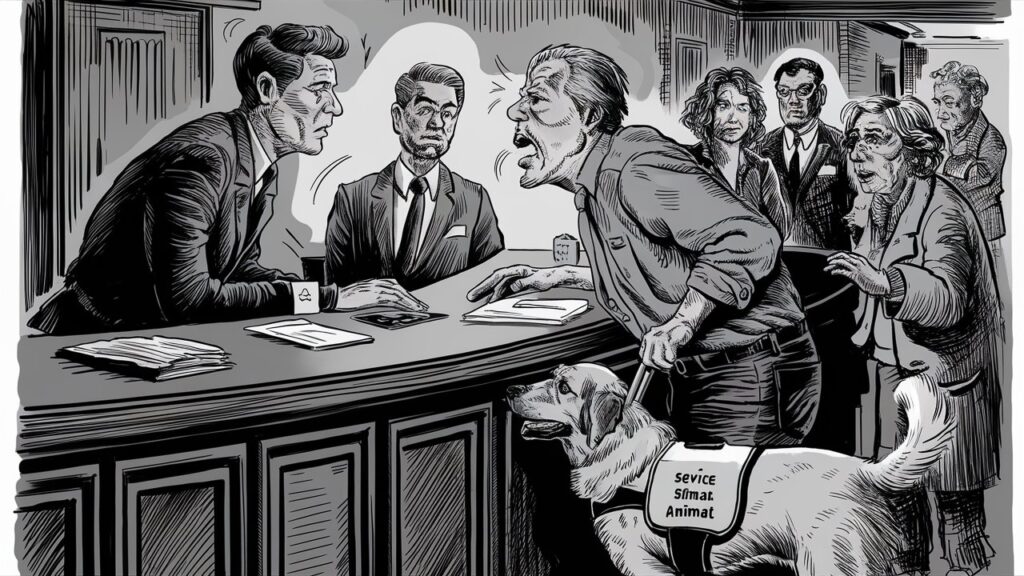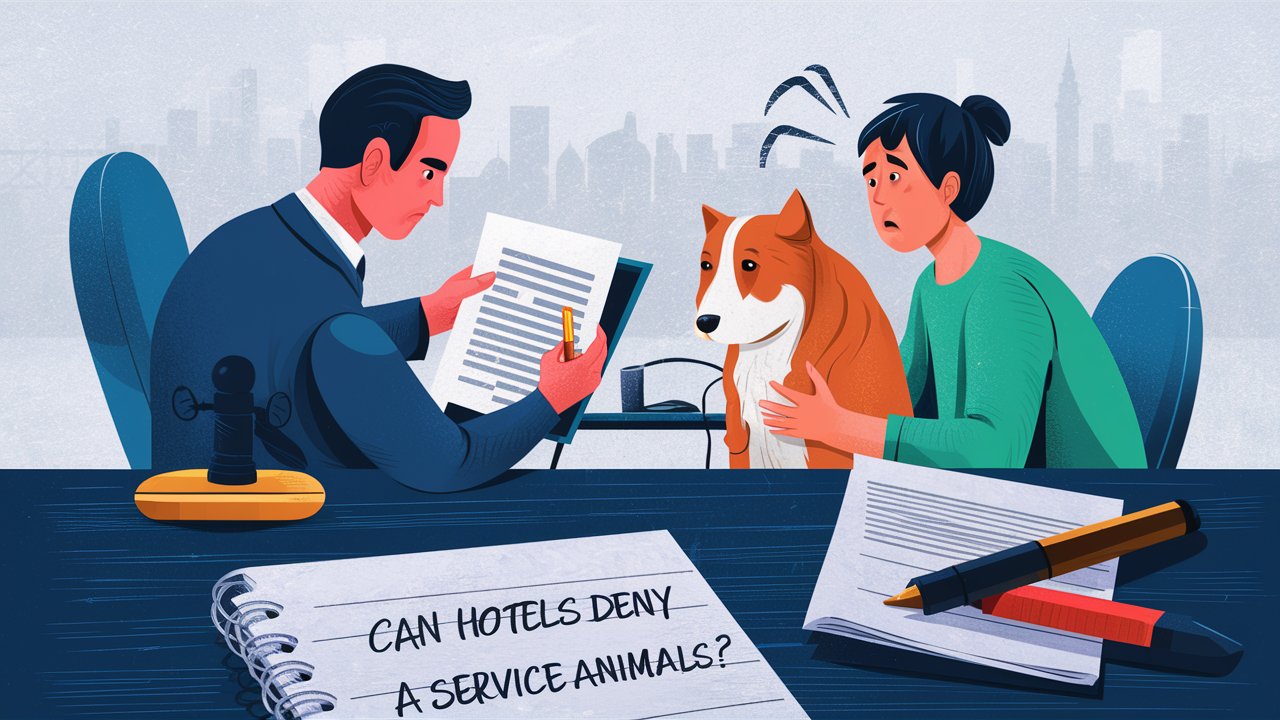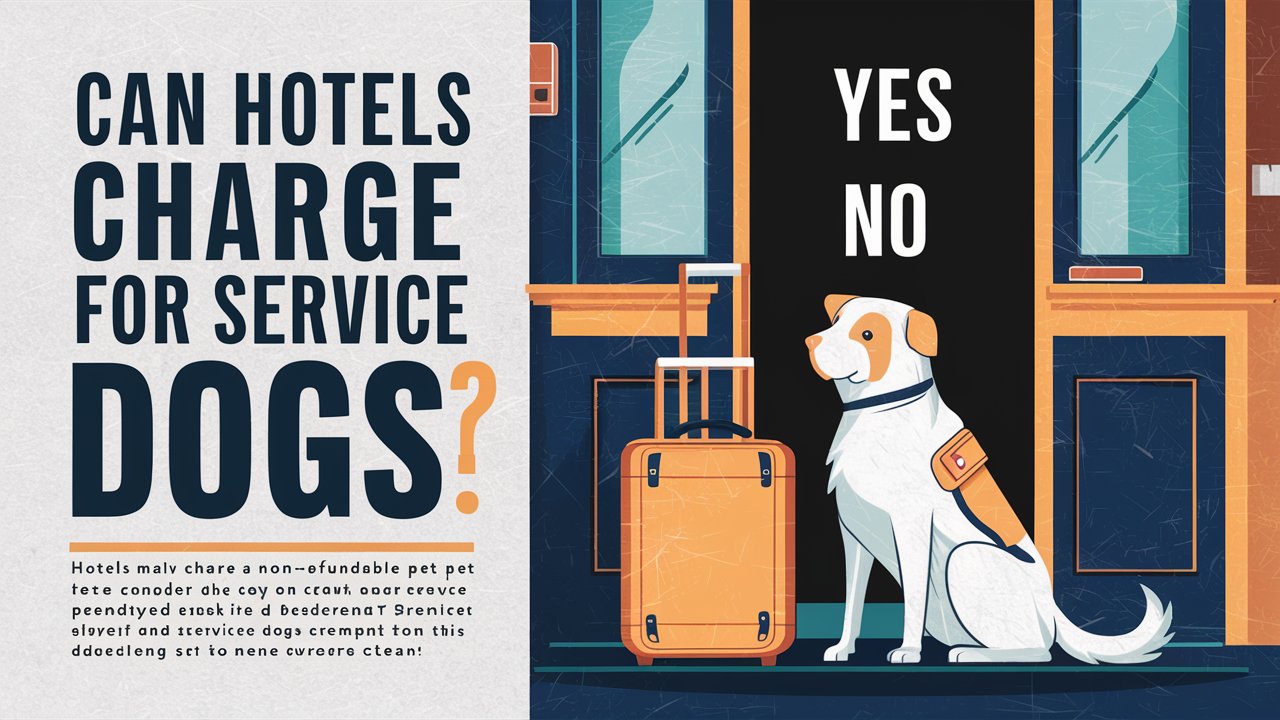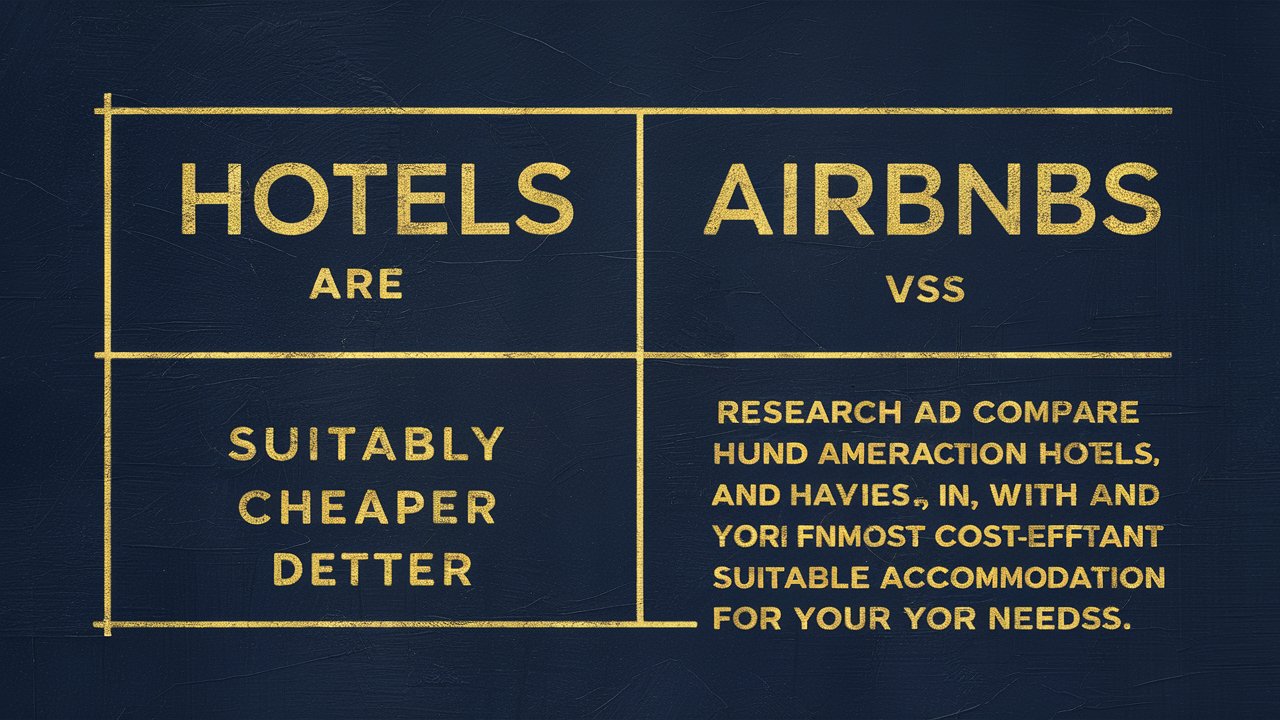Service animals play a crucial role in assisting individuals with disabilities, providing support, and enhancing independence. These specially trained animals are not merely pets but serve as vital companions to their owners, aiding in various tasks and activities of daily living.
Laws Regarding Service Animals
The legal landscape governing service animals is primarily shaped by the Americans with Disabilities Act (ADA) and the Fair Housing Act (FHA). These laws mandate reasonable accommodation for individuals with disabilities, including the presence of service animals in public spaces and housing accommodations.
Can Hotels Deny Service Animals?
While hotels are subject to ADA regulations, there are circumstances under which they may deny service animals. However, such denials are rare and must adhere to strict criteria outlined by the ADA. Hotels cannot refuse accommodation to individuals with disabilities accompanied by service animals unless certain exceptions apply.
Factors Influencing Hotel Policies
Several factors influence hotel policies regarding service animals. Health and safety concerns, potential property damage, and the comfort of other guests are among the primary considerations. Hotels must balance the rights of guests with disabilities and the well-being of all patrons.
Legal Implications of Denying Service Animals
Failure to comply with ADA regulations regarding service animals can result in legal consequences for hotels. Violations may lead to discrimination lawsuits, financial penalties, and damage to the establishment’s reputation. It is essential for hotels to understand their obligations and responsibilities under the law.

Alternatives for Accommodating Guests with Service Animals
Hotels can explore alternatives for accommodating guests with service animals while addressing concerns about allergies, cleanliness, and safety. Proper documentation and verification of the animal’s status as a service animal can help ensure compliance with ADA regulations. Additionally, hotels should consider providing reasonable accommodations to meet the needs of all guests.
Ensuring a Positive Experience for Guests with Service Animals
To create a welcoming environment for guests with service animals, hotels should invest in staff training and accessibility measures. Employees should be educated on ADA requirements and trained to interact respectfully with individuals with disabilities. Furthermore, hotels can implement accessibility features such as designated relief areas and pet-friendly amenities.
Conclusion
In conclusion, while hotels have limited discretion in denying service animals, they must navigate complex legal and ethical considerations. By understanding their obligations under the ADA and prioritizing inclusivity, hotels can provide a positive experience for all guests, including those with service animals.
FAQs
- Can hotels charge extra fees for accommodating service animals?
- No, hotels cannot impose additional fees or deposits for guests with service animals.
- What documentation is required for a service animal to stay at a hotel?
- Hotels may only request limited information, such as confirmation that the animal is a service animal and the tasks it is trained to perform.
- Can hotels refuse service animals based on breed restrictions?
- No, hotels cannot discriminate against service animals based on breed or type.
- Are emotional support animals considered service animals under the ADA?
- Emotional support animals are not classified as service animals under the ADA but may be covered under other laws, such as the FHA.
- How can hotels ensure the comfort of all guests when accommodating service animals?
- Hotels can designate specific rooms or floors for guests with service animals and provide amenities to address concerns such as allergies and cleanliness.










